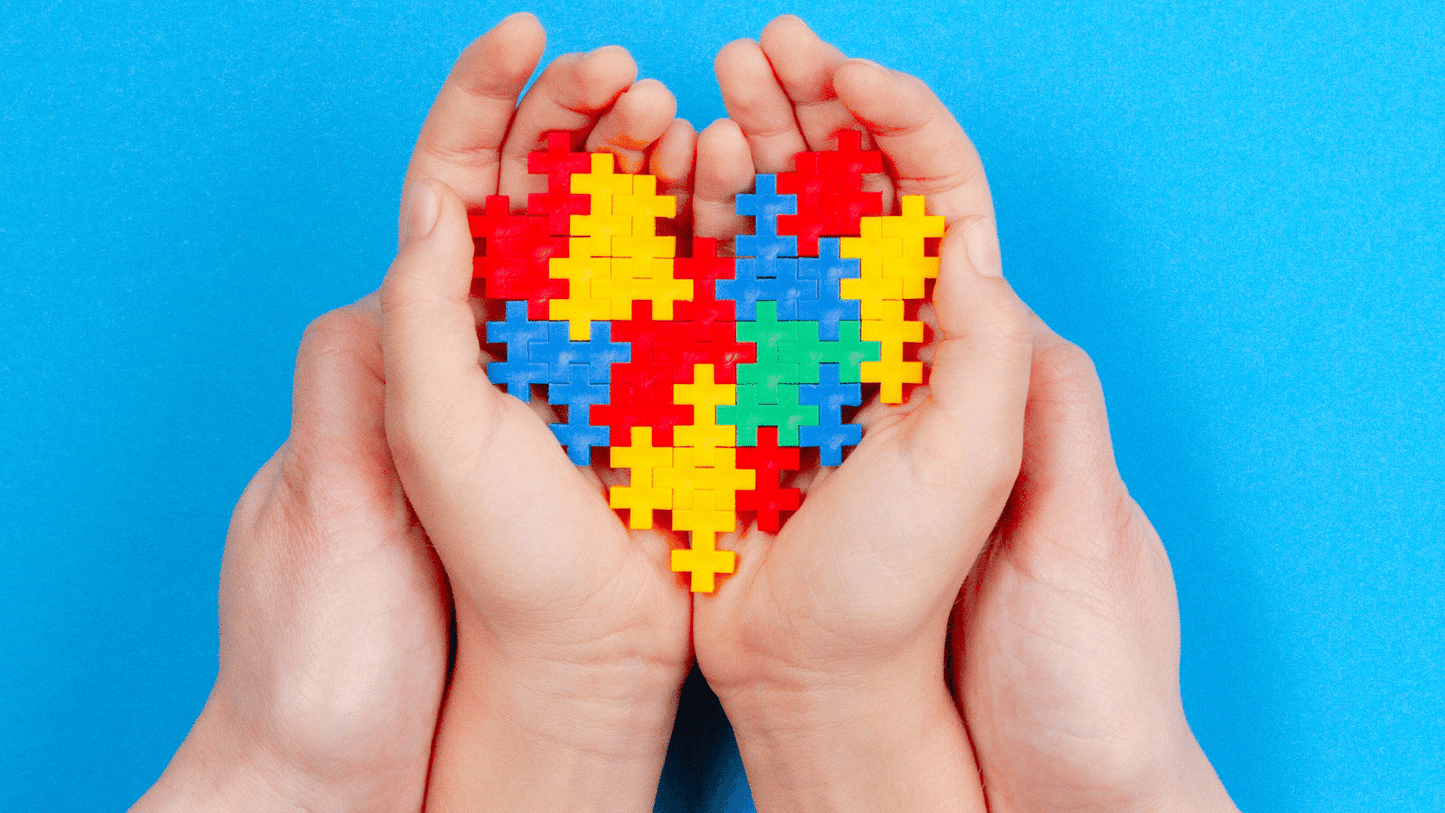
The 5 senses- sight, sound, smell, taste and touch. Individually, they receive sensory information; together, they help us understand the world around us.
That’s not to say you need all 5 senses functioning perfectly all the time. However, if one piece of the sensory puzzle is lost or damaged, it may impact the way someone experiences daily life.
Sensory processing varies from person to person, and while each case is unique, many people with autism experience difficulty processing sound. “I have had clients tell me that noises and sounds hurt their ears, it makes their brain feel like it is about to explode, it makes their anxiety level go up, it makes them feel out of control, etc,” says Emily Murray, MOT, OTR/L.
April is World Autism Month & we're shining a light on members in our community who live with & help others manage autism spectrum disorders. While autism looks and feels different for everybody, sensitivity to sound is a common experience and one that many people in the EarPeace community have managed with high-fidelity hearing protection.
Emily explains that people who are defensive to sound may opt for noise-cancelling headphones. However, they can block too much sound, making it difficult to hear others speak. Those who are distracted by sound may choose to work in a quiet environment with no background noise (i.e. doing homework in a quiet bedroom vs. at the dining room table when parents are cooking dinner in the kitchen and siblings are watching TV in the living room). For many, this has been harder to manage over the last year in lockdown.
And that's not the only way the pandemic has complicated treatment. Transitioning from face-to-face interaction to telehealth brought its own challenges. But even now that in-person treatment is back, occupational therapists like Emily are finding new obstacles.
"For kids with auditory processing challenges, the masks muffle words and eliminate the ability to use visual cues, such as reading lips. Our intervention has also shifted to support the increased stress associated with the pandemic for a lot of the kids we see," she says.
To learn more about Applied Behavioral Analysis (ABA) & how it can help people with autism, we spoke with Diane Berger, MA, BCBA, Director of the Berger Learning Group. Diane's daughter was diagnosed with autism when she was 2 years old. Her doctors recommended ABA, where the goal is to increase helpful behaviors and manage challenging ones. This approach allows for customized programs that are unique to each client's needs.
ABA is most effective when a holistic plan spans across different areas of daily life. While therapists are key, so are the teachers, caregivers, parents & other authority figures that spend time with the client when they're not with their therapist. Understanding she'd need to play an active role in her daughter's program, Diane decided to go back to school to get her graduate degree in Behavior Disorders- Applied Behavioral Analysis from Teachers College, Columbia University.
Diane's unique perspective of parenting, as well as instructing, a child with special needs inspired her to create the Berger Learning Center in 2009. Diane and her team of highly-trained ABA instructors serve the New York/New Jersey metropolitan area by providing individualized programming to meet each child’s specific needs & helping families with the training & resources they require to support their child’s progress. The center-based program provides a range of ABA services for children 18 months to 18 years old.
In 2020, the CDC reported that approximately 1 in 54 children in the U.S. is diagnosed with an autism spectrum disorder. That stat alone marks a significant increase since Diane's daughter was diagnosed in 1999. And while autism is the fastest growing developmental disorder, it remains the most underfunded.
In honor of World Autism Awareness Day, Diane & Emily talked about what we can all do to support. Everybody knows somebody who is affected by autism, and the continued increase in diagnoses makes that even more certain. Because of its prevalence, Diane believes autism awareness is an integral part of our social contract & we couldn't agree more. Awareness is important not only as we evolve into a more inclusive society, but because the likelihood of meeting & engaging with people with autism is also increasing.
Awareness & understanding autism spectrum disorder is also critical to avoid generalizing this diverse community of individuals. "A diagnosis of autism doesn't tell me who a person is, but rather what areas they may have deficits or challenges in (such as language, social interaction, and sensory processing)," says Emily. "Similar to sensory processing, the autism spectrum is a broad spectrum and no two people present the same. It is important to see the person first and find out who they are as a unique individual!"
Employment is another area that needs vast improvements to support the autistic community. While there are agencies that specialize in finding jobs, Diane says there are still discrepancies and misconceptions about hiring someone with autism. "They are capable! Many just need an opportunity that values their individual strengths."
Whether you have personal experience with autism or not, we all need to acknowledge our role in raising awareness. It's a small step in making a big global impact, but together, our contributions can create change.
